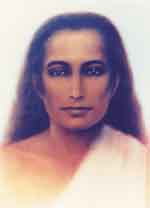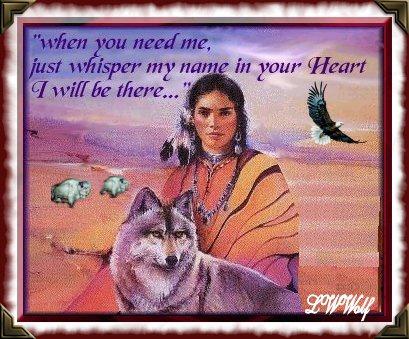
Susan Brownmiller
Hosted free by tripod.com

Susan Brownmiller
Who were the real savages?
"The Indians of early America never raped their captives"

Robert Shepherd
Frederick Drimmer, who edited a collection of captivity narratives, wrote, "Anyone reading early accounts of captivity among the Indians is struck by the fact that female prisoners do not appear to have been abused by the Indians in the eastern section of the country." He presents a blanket summation from General James Clinton, who participated in a punitive expedition against the Iroquois in New York in 1799: "Bad as savages are, they never violate the chastity of any women their prisoners."
The first full-length narrative to become a popular success in its time was that of Mary Rowlandson, the "goodwife" of the first ordained minister of Lancaster, Massachusetts. She was taken captive in 1676, the sole adult survivor of a massacre of more than forty persons. Mrs. Rowlandson, as befitting her station, sprinkled her story with quotes from the Scriptures and plentiful thanks to the power of God for her divine deliverance, and her writing style became a model for many of the narratives that followed. Toward the end of her story, Mrs. Rowlandson made the following declaration:
I have been in the midst of those roaring lions and savage bears that feared neither God nor man nor the devil by night and day, alone and in company, sleeping in all sorts together, and yet no one of them ever offered the least abuse of unchastity to me in word or action. Though some are ready to say I speak it for my own credit, I speak it in the presence of God and to his glory.
Mrs. Rowlandson's case was not atypical. Isabella McCoy, captured by the St. Francis Indians in 1747, also averred that she had not been raped. The anonymous narrator of the battles of Trenton and Princeton ... claimed that British abuse of women had been "far Worse in this Respect than an Indian War, for I Never heard nor read of their Ravishing of Women ...." Another anonymous author, who penned A Narrative of the Capture of Certain Americans at Westmoreland (1780), saw fit to comment, "I don't remember to have heard an instance of these savages offering to violate the chastity of any of the fair sex who had fallen into their hands."
Susan Brownmiller continues, noting that the passages by General James Clinton and by the anonymous Westmoreland author both refer to the Iroquois, which she calls a most remarkable nation whose structure was based on a matrilineal foundation in which played an important political role, unlike other Indian tribes and unlike existing white civilization.
Drimmer points out, "It was a custom for the braves to make elaborate preparations before going on the warpath, and these included the practice of continence and rites of purification. To abuse a female captive would have weakened the Indians' 'medicine.'"
I believe it was the anthropologist Malinowski who stated that among the so-called 'primitive' tribes that are matriarchal in structure, the phenomenon of rape is unheard of.
By contrast, existing white civilization was (in Riane Eisler's word) androcratic and male dominated. The whites typically flattered themselves on their advanced civilization, their enlightenment. They expected that their Euro-centric empire would defeat the "primitives." Darwin, for example, made such a prediction time and again in his writing:
In Chapter 5, Descent of Man, Darwin said:
I think to myself, what is civilized about a race of people who tell themselves rape is okay? History tells us that it was not the native or tribal folk you did the raping, but the supposedly white, civilized Christians.
Also reference James Axtell, "White Indians of Colonial America." The reports of Roger Williams of Rhode Island, and accounts of (among others) Mary Jemison, Mary White Rowlandson, etc.
At the present day civilised nations are everywhere supplanting barbarous nations, excepting where the climate opposes a deadly barrier; and they succeed mainly, though not exclusively, through their arts, which are the products of the intellect. It is, therefore, highly probable that with mankind the intellectual faculties have been mainly and gradually perfected through natural selection; and this conclusion is sufficient for our purpose. Undoubtedly it would be interesting to trace the development of each separate faculty.
In Chapter 6, Descent of Man, Darwin said:
At some future period, not very distant as measured by centuries, the civilised races of man will almost certainly exterminate, and replace, the savage races throughout the world. At the same time the anthropomorphous apes, as Professor Schaaffhausen has remarked, will no doubt be exterminated. The break between man and his nearest allies will then be wider, for it will intervene between man in a more civilised state, as we may hope, even than the Caucasian, and some ape as low as a baboon, instead of as now between the negro or Australian and the gorilla.
The smug attitude of many European-descended people attracted the barbs of some of the wittier (and humbler) of their fellow whites. America's Ben Franklin suggested concerning the anti-native sentiments of whites, that the so-called enlightened (Euro-centered) attitudes may not be the final word. Whites disdained native heathenism looked down their noses at primitive tribal peoples. Franklin remarked, "Savages we call them, because their manners differ from ours, which we think the perfection of civility."
|
White Indians
James Axtell's studies of the early Americans who were captured by various Indian peoples give us a picture of these "white Indians" -- many of whom chose to remain with their tribal captors. Axtell writes that many captives soon discovered that the English had no monopoly on virtue and that in many ways the Indians were morally superior to the English, more Christian than the Christians.
As early as 1643 Roger Williams had written a book to suggest such a thing, but he could be dismissed as a misguided visionary who let the Narragansetts go to his head. It was more difficult to dismiss someone like John Brickell, who had lived with the Indians for four and one-half years and had no ax to grind with established religion. "The Delawares are the best people to train up children I ever was with," he wrote. "Their leisure hours are, in a great measure, spent training up their children to observe what they believe to be right. . . . As a nation they may be considered fit examples for many Christians to follow. They certainly follow what they are taught to believe more closely, and I might say more honestly, in general, than we Christians do the divine precepts of our Redeemer. . . . I know I am influenced to good, even at this day," he concluded, "more from what I learned among them, than what I learned among people of my own color." After many decades with them, Mary Jemison insisted that "the moral character of the Indians was . . . uncontaminated. Their fidelity was perfect, and became proverbial; they were strictly honest; they despised deception and falsehood, chastity was held in high veneration." Even the Tory historian Peter Oliver, who was no friend to the Indians, admitted that "they have a Religion of their own, which, to the eternal Disgrace of many Nations who boast of Politeness, is more influential on their Conduct than that of those who hold them in so great Contempt." To the acute discomfort of the colonists, more than one captive maintained that the Indians were a "far more moral race than the whites."
|
Brutal floggings
In the early days when government policy of herding entire peoples onto reservations was being implemented, there was also a goal of compelling natives to attend boarding schools, ready or not. William T. Hagan writes that "the death rate among students was abnormally high. Stories of coproral punishment, of school jails, of young warriors shorn of their long locks heightened the unpopularity of these institutions." [p137]
Joseph K. Dixon, L.L.DThe Indian's civility and hospitality, both to his own kind and to strangers, has been a marked feature of this character from the coming of the white man to the present day. When Columbus touched the shores of the New World the friendly Caribs gave him a hearty welcome. The heart's right hand of fellowship was stretched out in welcome and hospitality as explorers and settlers landed on American soil. Dignity, generosity, and courtesy marked the attitude of the Indian toward these new white strangers. The character generally attributed to the Indian is that of a savage, but this blemish came upon him through contact with the white man. Their ingenuous and trustful nature quickly degenerated as they were enslaved, betrayed, and slain. Advantage was taken of their ignorance and kindness. Then came on a race war unparalleled in ferocity and barbarism.The inexorable march of civilization regardless of ethics swept on until we heard the Indians' war cry but failed to see the diviner grace of friendship. The Indian returned with interest every injury and hardship, every bitter assault and wicked aggression. He paid in full all accounts in the coin of pitiless revenge. These shadows obliterate our thought of him as a courtier and hospitable host. The Indian will divide his last crust and then go hungry himself that you might have his half of the crust. Had it not been for Indian generosity in furnishing supplies of food, the early settlers in both New England and Virginia must have perished with hunger. Every guest entering an Indian wigwam is met by all the graces of hospitality -- in cordial greeting -- in a splendid home feeling. [Joseph K. Dixon] |
The soreness of the land - the prophecy of Kate Luckie, Wintu Spirit WomanThe bridge is love ~ native spirituality is the wordless song of the heart
Indians and Ancient Israel - amazing discovery of many similarities
Wisdom of the Great Chiefs - native words still speak from long ago
Chief Seattle's oration, 1854 - ringing in modern ears like prophecy
The Peoples' Paths north American Indian Historical Sites
Kate Luckie - Earth Mother Crying two spirit woman tells how Mother's children make her weep
Awakening Spirits (Tom Brown Jr.) - a Native "primer" for budding Shamans
The Tahtonka Site : American Native Spirituality - for American Natives, spirituality is not exactly "religion" at all
Dennis Banks American Indian activist and a prophet for our times (an Ojibway)
John Marrant, black apostle to the Cherokee - with credibility among Native folk, he won many
Harambee Indigenous Urban Ministries - the beloved community koinonia TODAY!
George Washington - when your worst enemy turns out to be a best friend.
The Iroquois Constitution (Great Law of Peace) Influenced That of U.S., Historians SayJohn Stewart "Man of Color" - adopted by the Wyandotte; he let his light shine
The American Indian Heritage Foundation Providing relief services to native peoples in North America.
NARF : Native American Rights Fund - 38 years of standing firm for justice.
Hanksville Index of Native American resources on the internet.
Native American Church "millennium purification and emergence"
Wesleyan Native Ministries empowers Native and indigenous leaders to transform their communities
Never Give Up. The native American saga of hope and triumph.
Indian Boarding Schools : sometimes they were stripped naked and horse whipped
Residential Schools and Abuse - Our past does not have to equal the present....
Civilize Them With a Stick (horrible beatings at residential schools) - review of the Mary Crow Dog Story
White man's legacy of the rape ethic. A Brownmiller site.

Text passages selected by
Robert Shepherd
photograph
last save 12.23.11